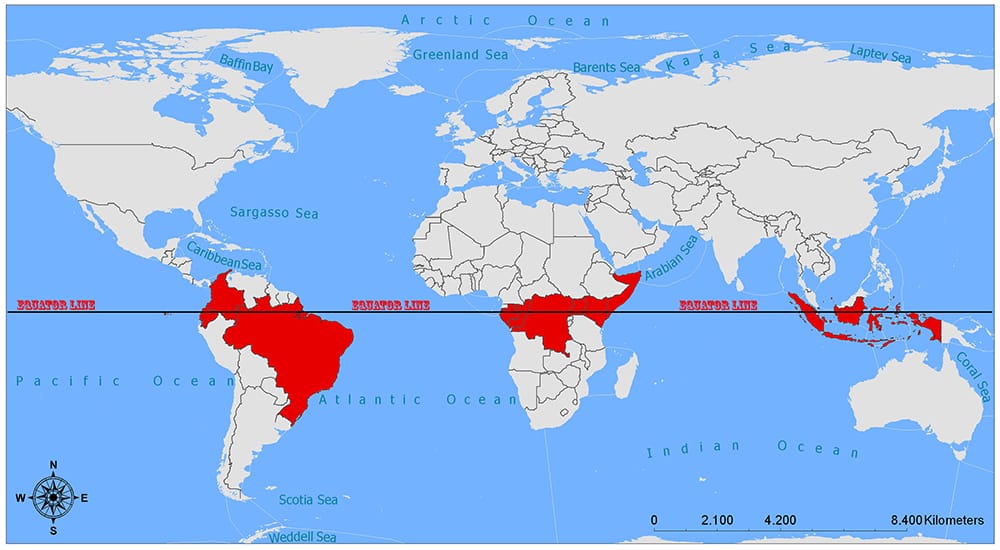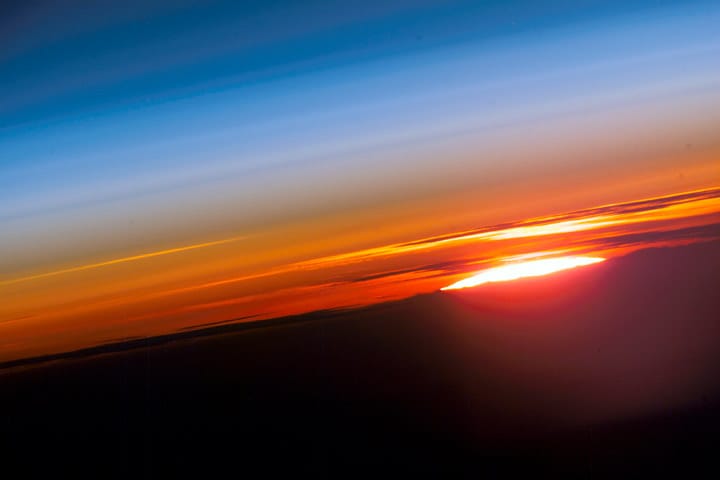Light is a form of energy. On Earth, light from the Sun supplies energy to heat the planet and maintain temperatures. Earth’s surface heats unevenly because sunlight (solar radiation or light energy) strikes different parts of the planet more directly or less directly depending on latitude. When light hits a surface more directly (almost straight on or perpendicular to the surface), the energy is more intense and concentrated over a smaller area.
When light hits a surface at a less direct angle, the energy is more spread out and less intense. Because Earth is a sphere, sunlight hits the curved surface more directly closer to the equator and less directly closer to the poles. Solar radiation is most direct at, or close to, the equator and thus produces warmer temperatures. Farther from the equator and closer to the poles, solar radiation is less intense, and sunlight strikes Earth at less direct angles, resulting in cooler temperatures.
The Sun's Effect on Climate Lesson 2a: Angles of Light Energy
The equator isn’t warm because it’s closer to the Sun. The equator is warm because it receives more direct sunlight.

Image: Sun hits the equator.
The circle represents Earth and the yellow bands represent sunlight. The sunlight that strikes the equator (or near the equator) is focused into a relatively small region, while the sunlight striking near the poles gets spread out. Why? Because the Earth is roughly spherical, and the land near the poles is slanted with respect to the angle of the Sun’s rays.
If each band of sunlight carries equal energy, then the sunlight striking near the equator has all that energy focused into a narrow spot — consequently, it’s going to heat up Earth more. The sunlight striking near the poles has its energy spread out over a wider region, so it heats up the ground less, and the poles are colder.
Now let’s talk about the second part of your question. Sunlight doesn’t directly heat the air (well, it does, but not very much in the lower portion of the atmosphere). So, the sunlight warms the ground, and the ground warms the air above it. Warm air, being less dense than cold air, tends to get buoyed upward. As it rises, the pressure decreases and the air expands, which causes it to get colder again. - Lucas Curtis
Lucas Curtis - Science teacher

African Countries that the equator passes through are: Gabon; Congo; Democratic Republic of Congo; Uganda; Kenya; Somalia and São Tomé and Príncipe.




